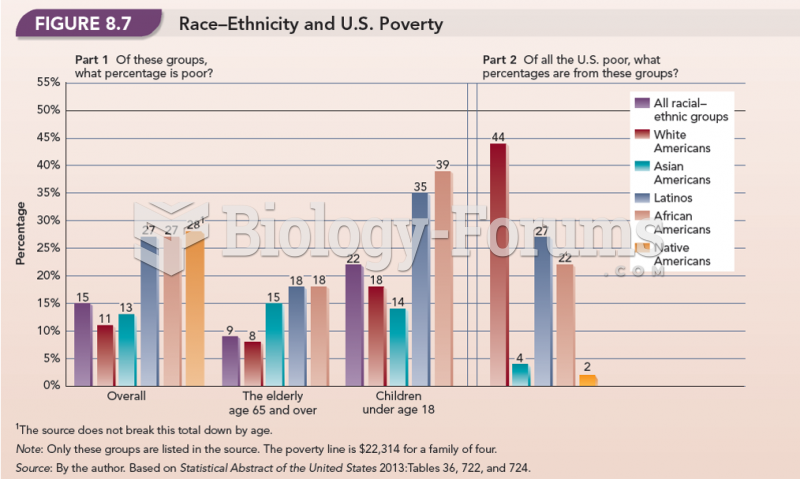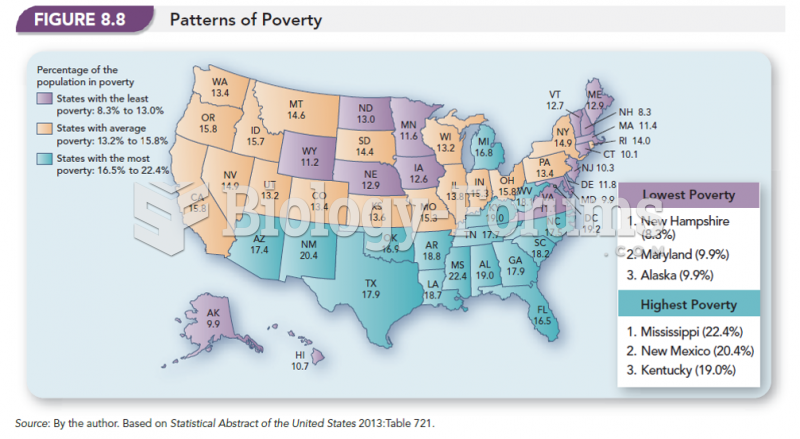Answer to Question 1
To some extent, poverty is passed on from generation to generation in a cycle. Some authorities argue that the explanation can be found in a culture of poverty. Oscar Lewis, an anthropologist, is one of the chief proponents of this cultural explanation. Lewis examined poor neighborhoods in various parts of the world and concluded that people are poor because they have a distinct culture or lifestyle. The culture of poverty arises after extended periods of economic deprivation in highly stratified capitalistic societies. Such economic deprivation is brought about by high rates of unemployment for unskilled labor and by low wages for those who are employed. Such economic deprivation leads to the development of attitudes and values of despair and hopelessness. Once developed, this culture continues to exist, even when the economic factors that created it (for example, lack of employment opportunities) no longer exist. The culture's attitudes, norms, and expectations serve to limit opportunities and prevent escape. A major reason the poor remain locked into their culture is that they are socially isolated. They have few contacts with groups outside their own culture and are hostile toward the social services and educational institutions that might help them escape poverty. They reject such institutions because they perceive them as belonging to the dominant class Furthermore, because they view their financial circumstances as private and hopeless and because they lack political and organizational skills, they do not take collective action to resolve their problems.
The culture-of-poverty theory has been controversial and widely criticized. Eleanor Leacock argues that the distinctive culture of the poor is not the cause but the result of their continuing poverty. She agrees that the poor tend to emphasize instant gratification, which involves spending and enjoying one's money while it lasts. But she argues that instant gratification is a result of being poor, because it makes no sense to defer gratification when one is pessimistic about the future. Leacock argues, the poor are forced to abandon middle-class attitudes and values, which are irrelevant to their circumstances. In an even stronger indictment, William Ryan criticizes the culture-of-poverty theory as being simply a classic example of blaming the victim. Blaming the poor for their circumstances is a convenient excuse, according to Ryan, for refusing to endorse the programs and policies thought necessary to eradicate poverty. Ryan says bluntly that the poor are not poor because of their culture but because they do not have enough money.
Answer to Question 2
There are a number of possible causes of poverty. Few of them are:
High unemployment
Poor physical health
Physical disabilities
Alcoholism
Drug addiction
Large families
Job displacements due to automation
Low educational level
Households with young children headed by females only
Being labeled an ex-convict or crazy
Residence in a geographic area where jobs are scarce
Gambling
Low-paying jobs
This list is not exhaustive. However, it shows that there are many causes of poverty. Eliminating the causes of poverty would require a wide range of social programs. Poverty interacts with almost all other social problems-emotional problems, alcoholism, unemployment, racial and sex discrimination, medical problems, crime, gambling, and so on. The interaction between poverty and these other social problems is complex. These other social problems are contributing causes of poverty. Yet, for some social problems, poverty is also a contributing cause of those problems (such as emotional problems, alcoholism, and unemployment). Being poor intensifies the effects (the hurt) of all social problems.







